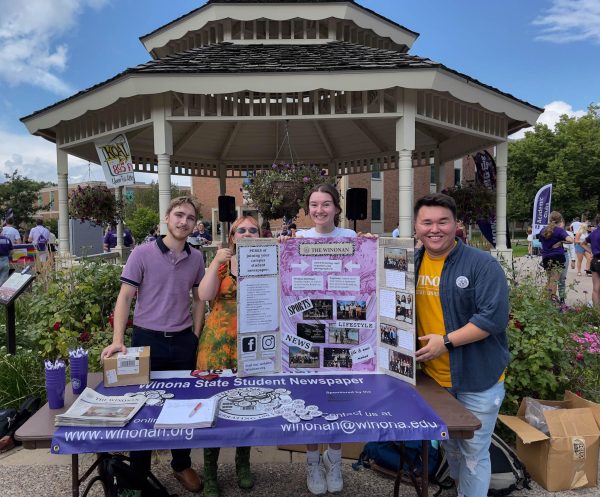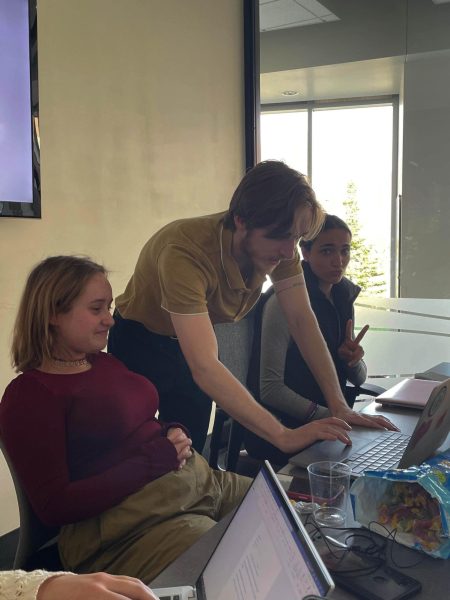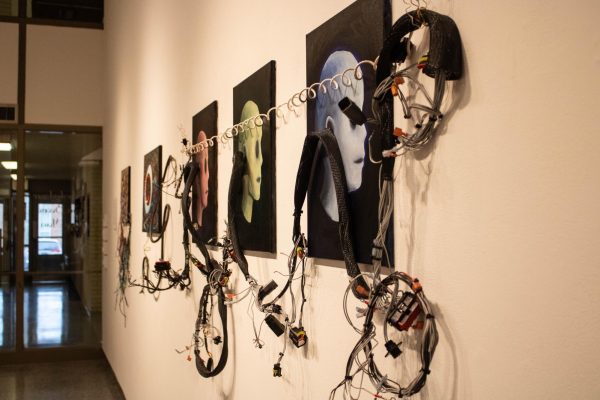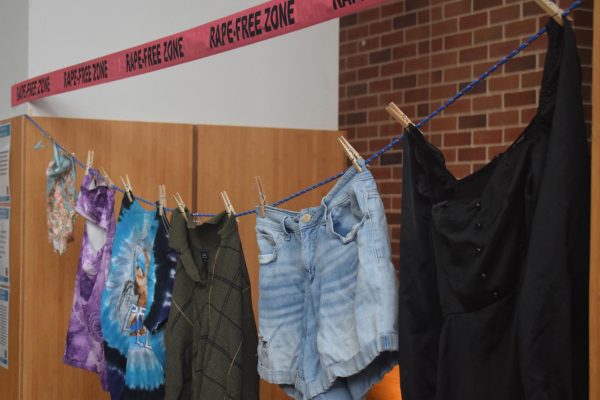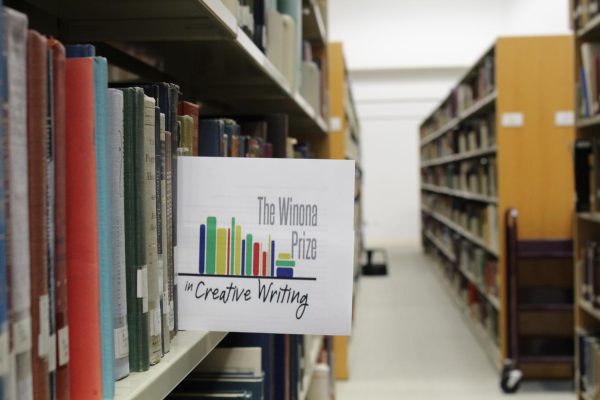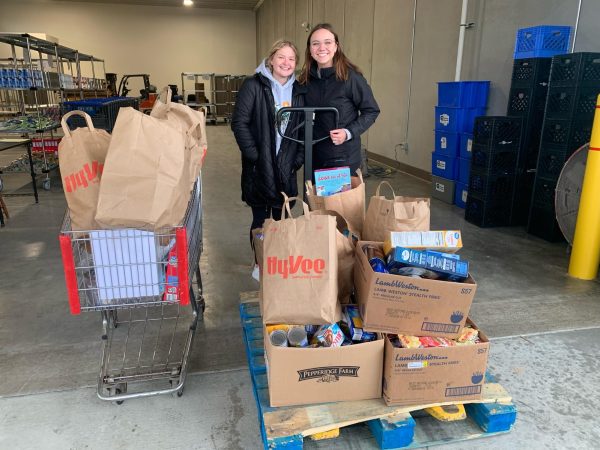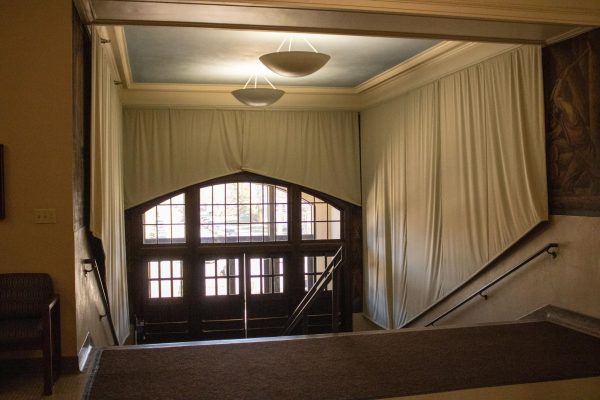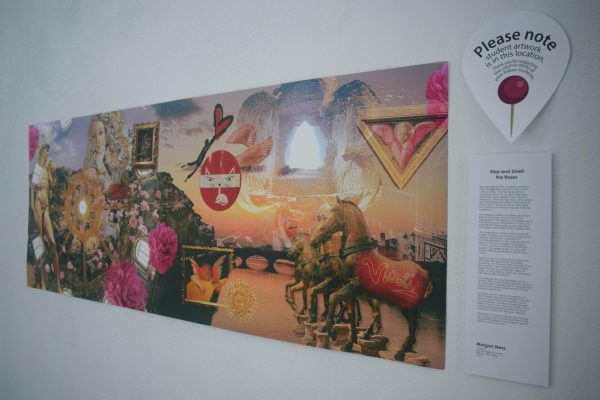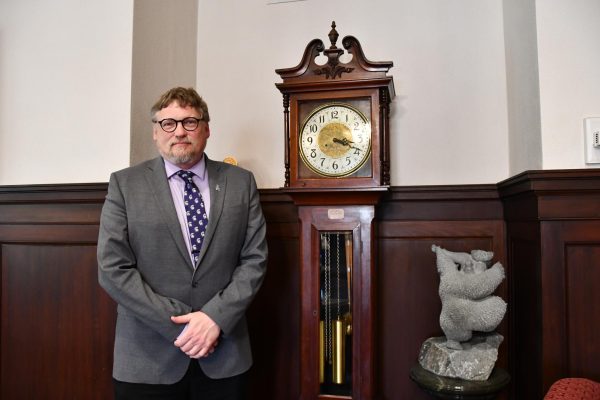Earth Talk stresses sustainability with food

February 27, 2019
Winona State University’s Geoscience Department hosted Michelle Courtright, who presented “How Your Burger is Warming the Planet” as a part of the spring 2019 Earth Talk Series happening this semester.
Courtright is the owner of Fig + Farro, a plant-based restaurant in Minneapolis staffed with sustainability activists and people “who care a lot about the earth,” according to Courtright.
“Fig + Farro works with Trees for the Future to have a tree planted for every guest that dines with them in their restaurant,” Courtright said. “[The organization] works with Minneapolis public schools and are working to have a section in the schools that serves plant-based Fig + Farro meals.”
Jeanne Franz, a chemistry professor, organized the event and invited Courtright to attend the Earth Talk Series. Franz is also the director of the Sustainability Studies Program on campus, through this program and her classes she leads the Energy Challenge contest as a way to encourage sustainable living.
“In the chemistry department, I do a number of things in my classes to encourage students to take care of the planet, for example, right now one of my classes is leading the Energy Challenge contest that is taking place between the different residence halls,” Franz said. Franz explained why she asked Courtright to do a talk at Winona State.
“I invited Courtright because she is very committed to reducing the climate change impact of food,” Franz said. “Courtright seemed like a very dynamic person, and I wanted her to talk about her experiences in Poland as well as the role food choice can have on climate change.’
Franz worked with the Winona State geoscience department, the sustainability office and the student green fee to co-sponsor the event.
“Sustainability minors self-elect themselves as someone who wants to make the planet a better place,” Franz said. “Several of the students that I work with either in the sustainability minor or in the Environmental Club are very passionate about sustainable food, so bringing in Courtright seemed perfect.”
One of the people who work with sustainability on campus, Nathan Engstrom, campus sustainability director, explained the importance of this talk.
“The topic of her talk is important to everyone because everyone eats. By being mindful of the choices that we make we can better understand the impacts of our actions. Even something as simple as eating a meal can have profound impacts,” Engstrom said.
During the Earth Talk, Courtright touched on the food production industry and how much water is used to produce meat.
On a college campus like Winona State’s, with two cafeterias and a food court, meat is served daily in multiple places. Chartwell’s part in helping to promote sustainability is by encouraging students to participate in “Meatless Mondays.”
Franz explained the importance of encouraging students to make sustainable choices in the cafeteria, like choosing to participate in “Meatless Mondays.”
“A surprising number of college-aged students identify themselves as vegans or vegetarians. Even more, a large number of people in this age group are interested in becoming a vegan or vegetarian,” Franz said. “College age students understand the problem of climate change and want to do their part to minimize it.”
Courtright encouraged students to try eating plant-based meals and to notice the price difference between meat-based meals and plant-based meals. She noted that “any step is a good step when it comes to practicing sustainability.”
“Something that shocks a lot of people is that plant-based eating can actually be cheaper than eating meat. While organic fruits and vegetables can be expensive, dried beans and legumes are cheap and can make tons of meals,” Courtright said. “This is great for college students who are living on a budget.”
Engstrom encourages students to reach out to the sustainability office to learn more about how they can be more sustainable on campus.
“The sustainability office works with everyone, students, faculty, staff and community members, to promote sustainability across all its many sectors,” Engstrom said.
“Each Winona State student has the opportunity to learn about complex sustainability issues and to gain experience through classes and activities, designing solutions during their time at Winona State,” Engstrom added. “We integrate community work, research, learning and living in our efforts to build pathways toward a livable future for all.”



























































